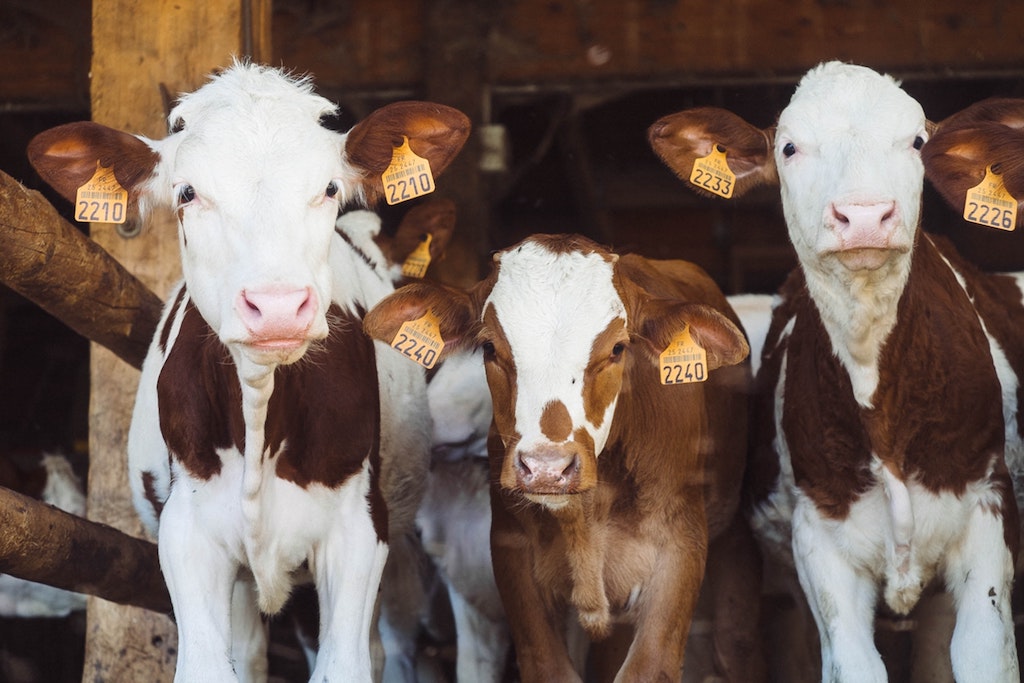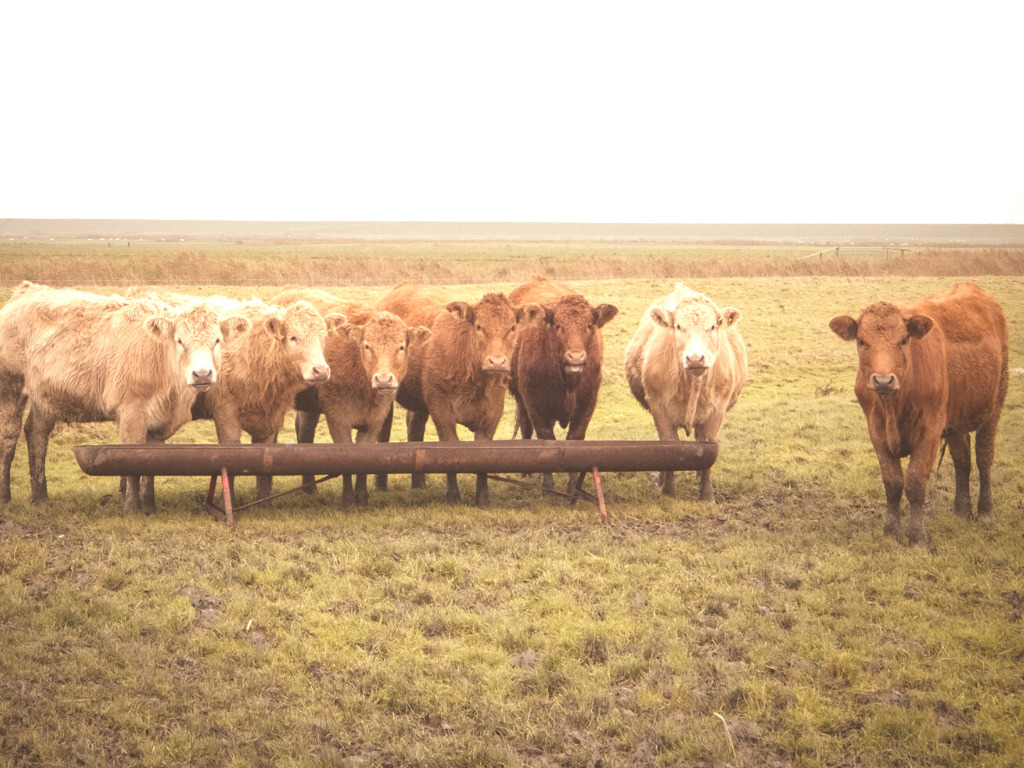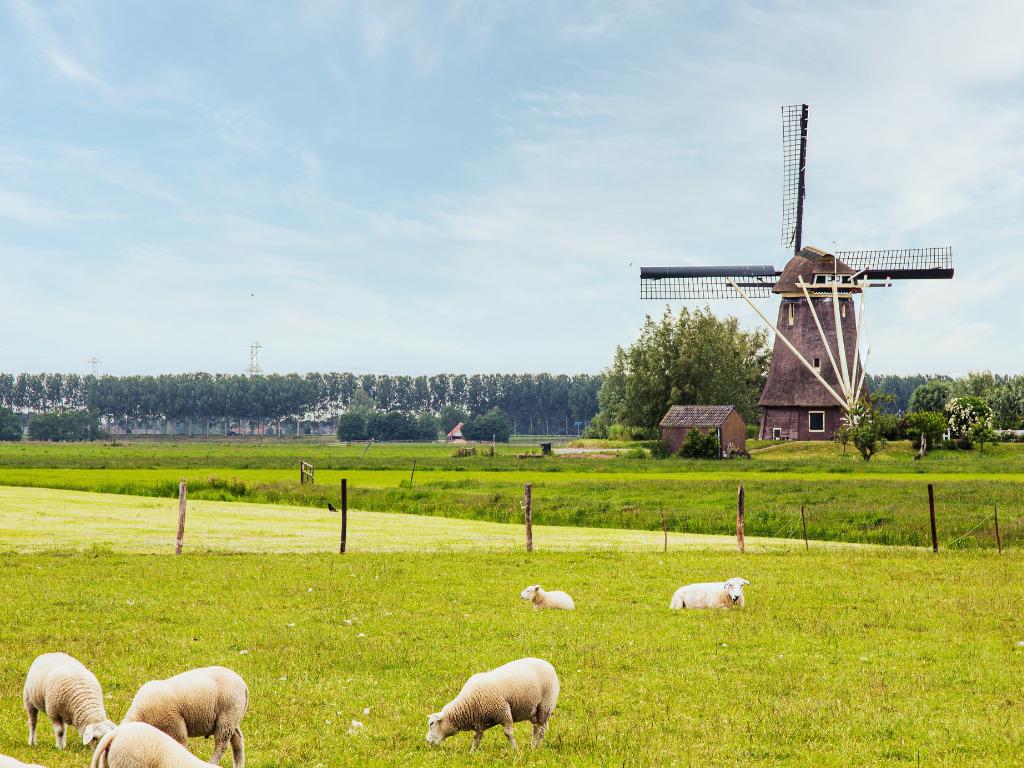4 Mins Read
In a first of its kind move aimed at reducing nitrogen pollution levels, the Netherlands says it has earmarked €25 billion to decrease its livestock populations.
Dutch officials say too much animal manure is causing widespread pollution and contributing to climate change. The Netherlands is home to 100 million cattle, chickens, and pigs—more than four times that of France or the UK. It’s the EU’s largest meat producer.
Under the proposed plan, Dutch livestock farmers would be paid to either relocate with their animals outside of the country, or, they can receive support to transition to less intensive farming methods with fewer animals, or out of animal farming altogether. The latter represents a small but growing trend among animal farmers. Some plant-based food brands and vegan organizations are helping to facilitate the shift for struggling farmers.
The Dutch program is spread out over thirteen years and will start out voluntary, but MP Tjeerd de Groot, from the Democrats 66 party, says it could become “necessary” to stop the negotiations “as a last resort.”
If all goes as planned, the funding would help lead to a 33 percent reduction in livestock animals across the country.

Livestock farmers have voiced concern over the program’s viability in the near and long term.
“Cars were very polluting but they had a chance to make cars less polluting with innovation. That is what we want,” said MP Caroline van der Plas, founder of the Dutch farmers party BoerBurgerBeweging (BBB).
Farmers say one of the biggest problems with the plan is that the pollution doesn’t disappear if farmers and their animals are forced to relocate, it just becomes someone else’s problem.
Farmer resistance
The resistance is expected to escalate in the coming months and years. It could bring protests similar to reactions to farming restrictions in India earlier this year, where hundreds of thousands of farmers took to the streets in protests all across the country.
Last year, India introduced a slew of new agricultural laws—the biggest changes to the country’s agricultural system since the 1990s.
Among the new laws are changes to how farmers can sell their crops. The government says the new laws are necessary to help modernize the country’s agricultural system, but the farmers say it’s a step backward to authoritarian rule. Under the new rules, the country’s farmers sell directly to private corporations in addition to the state-run markets. Many of those markets are subsidized to support the farmers, serving to keep many of them afloat.
But selling to the corporations spells doom, according to the farmers. They argued that they will then be at the mercy of corporate interest, much like chicken tournaments common for ranchers contracted to companies like Perdue and Tyson in the U.S. With corporate customers allowed to set their own pricing structures, this leaves the nation’s already largely poverty-stricken farmers without the safety net of market subsidies. This will put many of them out of business.
Farmers weren’t represented in the decision to make these policy changes, the protesters said—the government passed the laws without input from those most impacted.

Since last September, protests have been centered across the northern states of Punjab and Haryana, where hundreds of thousands of farmers have taken to the streets demanding reversal of the laws.
But the protests have spread out from the North; last November throngs of protestors marched into the outskirts of Delhi, setting up camp and vowing not to leave until the government repeals the laws.
The protests forced Prime Minister Narendra Modi to begin negotiations— but they’ve not been fruitful. And as the protests lingered, the response from authorities became more draconian with frequent raids and arrests.
Nitrogen mitigation
For Dutch farmers, the new proposal poses critical questions about how much ownership the government has over farmers’ land and what they do on it. Nonvoluntary measures could lead to a collapse in the country’s food system and displace thousands of small farmers.
But the highest administrative court in the country ruled in 2019 that Dutch lawmakers weren’t doing enough to mitigate nitrogen productions. The Netherlands’ lack of effort broke European Union laws.
DeGroot says the issue needs to be fixed “no matter what.” He had previously aimed to reduce livestock by fifty percent.
“We have to move away from the low-cost model of food production. This industry is causing damage to the farmers’ business model and the environment,” he said. “It’s time to restore nature, climate and air, and in some areas that may mean there is no more place for intensive farmers there.”
Lead image by E Mens on Unsplash




